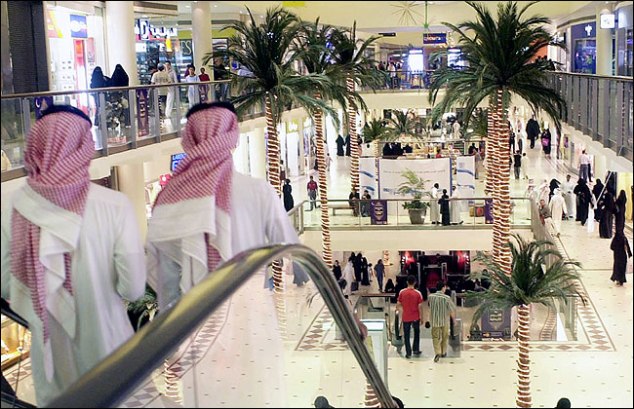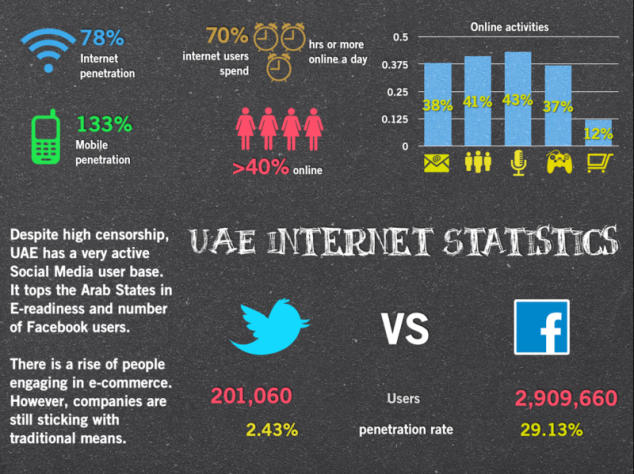Companies in the Middle East do what works best for them and reaches (or is reachable to) people. Search isn’t that (yet) in the Middle East, when it comes to exploring e-commerce outlets.
There are several reasons for the slow advancement of SEO (Search Engine Optimization) & online digital marketing in the Middle East:
1. Arabic is not a popular internet language of commerce and information

Yes, Arabic ranks seventh among the top-10 internet languages, but the “net indexed harvest” of what the internet contains of Arabic words is really limited to general information, Wikipedia pages and lots of user-generated content in forums and social media. Compared to other regions, fewer Arabic-language websites are dedicated to a business or a company. Most of these websites do not have dynamic content (blogs) and are poorly designed and search engine optimized.
2. The Middle Eastern buying behavior of target audiences is NOT search-centered

Riyadh Shopping Mall
Whether it relates to searching for general info or product info with the intent of buying, people in the Middle East are yet to adapt to giving their full trust to the internet for making a responsible purchase behavior. They are more used to practices such as “bargaining a price” and “checking out the good with their hands”, than to “fixed prices”, “product displays and comparisons” and “online payments”, which makes the traditional physical shopping experience a more favorable one. They believe what they see in a shop and view other alternatives with some suspicion.
3. The level of penetration of e-commerce in houses which is still immature.

While we see big name e-commerce brands establishing themselves, like Souq.com & Namshi.com, people know these websites from the TV-ads or from social media endorsements by friends or followers and not from conducting a search query on Google. So, it appears that Middle Eastern e-commerce companies are aware of the poor use of search engine for random buying decisions and relent to TV-ads and more high ROI media to achieve big and instant exposure.
4. TV is still very big in the Middle East

Despite the rise of engagement in e-commerce, companies are still sticking to traditional media in the UAE.
TV advertisement works in the Middle East more than in other regions and offers competition to online marketing or print marketing because of high rates of “home-sitters” overrepresented by females (the typical indirect purchase decision makers) and children (high birth-rate and young population region), next to low levels of readership and home-internet penetration rates in many areas.
5. E-commerce success is reserved for the big ones

Souq.com

Namshi.com
In the world of e-commerce of the Middle East you have to be big to be seen and successful, while in other parts of the world there is a flourishing SME, small business and digital home business branch with ordinary people selling goods online via web shops. Search engine is a typical advertising medium (SEO & SEM) for small & medium size business; since they are not many in the Middle East, there is not much utilization of it for commerce. Big business can always afford mass media advertising like TV with quick ROI, resulting in less attention to SEO.


















